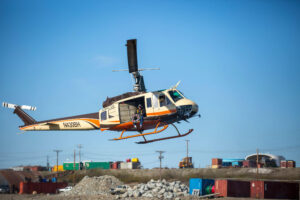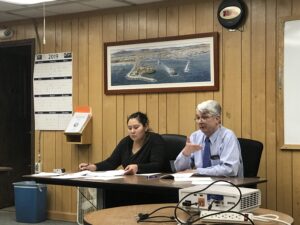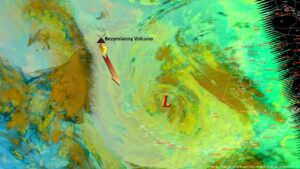Six Village Public Safety Officers graduated from the Department of Public Safety training academy in Sitka last week [April 27th-May 1st]. Half of them are now ready to serve Bering Strait regional communities.
“VPSO Nicholas Toolie is going out to Savoonga. VPSO Ivanoff is going to Unalakleet. And VPSO Topkok is going to Teller. I think they’re going to do a great job.”
According to Lieutenant Chad Goeden, commander of the DPS training academy, those three VPSO recruits went through 9 weeks of training. By comparison, Alaska State Troopers train for double that amount of time.
As Goeden reminds us, these officers are not trained the same way Alaska State Troopers are, mostly because they do not carry firearms.
“So what they don’t get that the regular municipal officers get, is mostly firearms training. They also don’t get nearly as much of the driving training, they get just a little bit but certainly not to the extent that municipal officers and Troopers get. They don’t get active shooter, (or) a lot of other things that kind of go around the firearms portion of it.”
Originally, the VPSO program was created to provide a first responder in remote communities where residents were normally left without the ability to respond to fires, traumatic injuries, search and rescues needs, and crime. Goeden says most of those needs have shrunk due to the advances of technology and improved resources, while one VPSO duty has grown significantly.
“The law enforcement role has just gotten bigger and bigger, and that is… the primary thing they end up doing is they are the first responders out there in the Last Frontier where there just is no commissioned law enforcement, the Troopers just can’t be in every village. So having boots on the ground and VPSOs there to act as a resource, take care of a lot of those misdemeanor investigations, kind of keep an eye on things, do parole and probation checks for people that need that; that is a huge benefit for the Troopers and it really takes the workload off of the Troopers in those areas.”

Nicholas Toolie of Savoonga says he knew the reality of working in law enforcement in rural communities, which is part of the reason why he wanted to fill a needed role.
“(I) wanted to help again, to feel purposeful again I guess…So I thought I would become a Village Police Officer, and I became a VPO for over a year and then my co-worker mentioned to me there was a VPSO opening, one for Savoonga. I was like ‘awesome, I’ll take that job, be a VPSO here in my own hometown.’”
Toolie of Savoonga, Harry Ivanoff of Unalakleet, and Darrin Topkok of Teller are all completing their 14-day quarantine in their houses, as mandated by local city leaders. But given the nature of their work, the VPSOs have already begun responding to emergency calls, when needed, to protect their hometowns.
According to Kawerak, with the addition of Toolie, Ivanoff, and Topkok, that still leaves eight communities in the Bering Strait region with unfilled VPSO positions. Those include Diomede, Elim, Gambell, Koyuk, Shaktoolik, St. Michael, Stebbins, and Wales. The next VPSO training class at the Department of Public Safety Training Academy is scheduled to begin on the last Sunday of July.
Image at top: From left to right, VPSO Harry Ivanoff of Unalakleet, VPSO Nicholas Toolie of Savoonga, and VPSO Darrin Topkok of Teller. Photo provided by Kawerak, used with permission, (2020).





